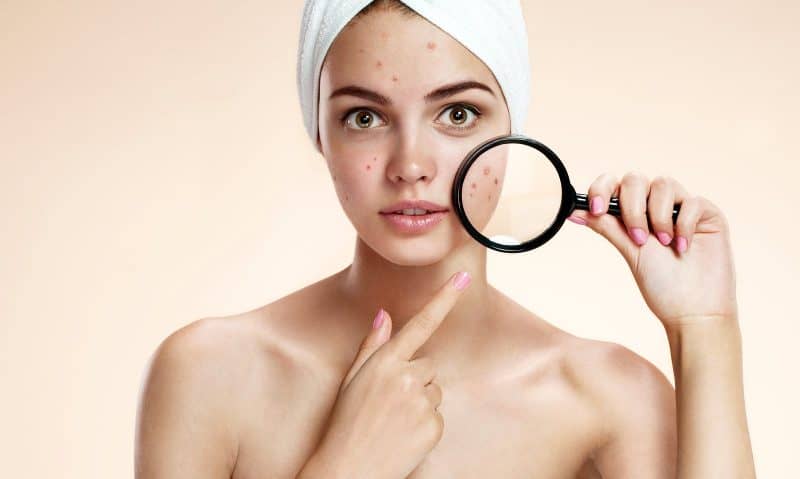No one loves when their skin breaks out. Occasionally, there might be a few pimples here and there. Other times, it’s so severe that it requires the help of a dermatologist.
If you’re one of 50 million people in the United States who suffers from acne, you’re certainly not alone. Let’s take a look at a few ways to help reduce or clear acne entirely.
Chapter Overview
1. Wash Your Face Twice a Day
Acne isn’t necessarily caused by a dirty face. When hair follicles are clogged with oils or dead skin cells, they become infected with bacteria, which is why you see red and white bumps.
Washing your face twice daily can help to reduce the amount of buildup. Be careful with how often or how hard you scrub as it can irritate the skin as well as the developed pimples.
2. Pharmaceutical Creams and Ointments
Some cases of acne can be tough to manage and require the help of a dermatologist prescribed ointment or cream.
Tretinoin cream is one of the leading creams available to help with acne. It increases collagen, stops excess pigment production, and treats acne directly at the source.
3. Refrain From Picking and Popping
It might seem tempting to pop or pick at a pimple. However, this can make your acne worse. It may result in scarring or inflammation of the skin, only exacerbating the issue.
Allow time to take its course. The pimple will subside over time unless you continue to irritate it.
4. Reduce Your Sugar Intake
Foods with high levels of sugar will increase the amount of insulin your body creates. The insulin is what makes your skin feel oily, in turn clogging your pores.
If you’re experiencing acne more than usual, try to cut back on processed foods like sugary desserts, dairy, or carbohydrates.
5. Oil-Free Sunscreens
Sunburns can lead to an over-production of oil that blocks your pores. Unfortunately, the problem with most generic sunscreens is that they’re thick and contain heavy oils.
Non-comedogenic sunscreen is oil-free so it can help to protect your skin without producing extra acne. Try to aim for 15 SPF or more.
6. Don’t Over Exfoliate
Exfoliation of the skin is the removal of dead skin cells. While some level of exfoliation can be helpful for acne, make sure not to overdo it.
This can remove the natural oils in your skin, causing the body to overcompensate. It’ll create more oils only worsening the breakout.
7. Lower Your Stress Levels
There is a clear connection between stress and acne. Stress hormones will activate the body to ramp up its oil production. This not only ages and dries out your skin, but is what can lead to acne.
Take some time to meditate or remove some of the added stressors in your life. If you’re feeling stressed, take a walk outside or get out in nature.
8. Shower After Exercising
This might seem like an obvious point, but showering after exercising can help to reduce levels of acne. Sweating can clog your pores and if not washed, can lead to more pimples.
It feels counterintuitive to not exercise if you’re feeling stressed, as it’s a great way to alleviate anxiety and improve your mood. But over sweating can cause more acne, which is exactly why it’s important to clean your body after you exercise.
Summary
There are several holistic ways to help reduce or completely heal acne altogether. But sometimes, it can be hard to find a healthy balance.
If you feel like you’ve tried it all and are still struggling with acne, talk with your dermatologist to see if there are any topical creams, hormone pills, or other medications that can help.

